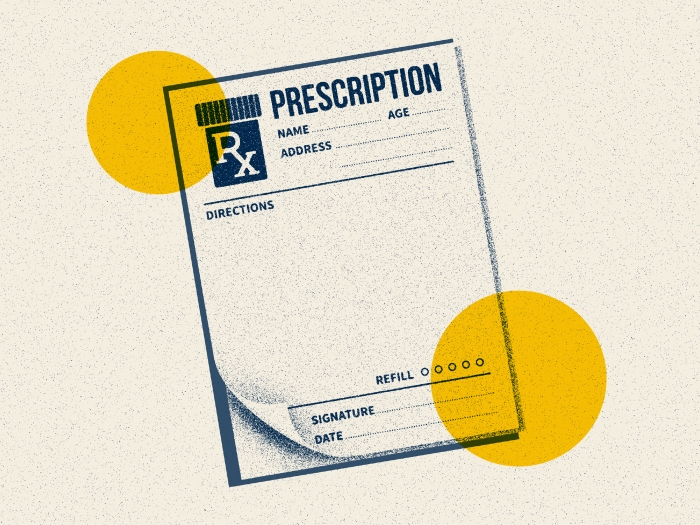New studies have linked reflux medications to dementia and other diseases. Should you worry? A Michigan Medicine expert explains the science.
7:00 AM
Author |

For more than 30 years, medications such as omeprazole (Prilosec), lansoprazole (Prevacid) and esomeprazole (Nexium) have been the go-to treatment for acid-related disorders of the digestive tract including gastroesophageal reflux disease (GERD) and peptic ulcer disease.
MORE FROM MICHIGAN: Sign up for our weekly newsletter
Called proton pump inhibitors (PPIs), an estimated 15 million Americans use them — both prescription and over-the-counter varieties.
While acid contributes to the breakdown and digestion of food, sometimes it eats away at the protective mucous barrier that lines the digestive organs, causing ulcers, and can lead to heartburn or regurgitation.
A PPI taken 30-60 minutes before a meal dramatically reduces the acid production of certain cells in the stomach, giving a chance for ulcers to heal and reduce reflux.
"PPIs really improve the quality of life of some patients," says Michigan Medicine's Jacob Kurlander, M.D., a clinical lecturer and gastroenterologist.
Questioning recent research
In the past couple of years, some studies have raised concern about possible adverse effects of long-term PPI use. It's a frightening list, including low magnesium, low vitamin D, stroke, Clostridium difficile (C. diff) infection, bone fractures, heart attacks, stomach cancer, pancreatic cancer, kidney disease and dementia.
SEE ALSO: Is It Safe to Take PPIs? A Gastroenterologist Explains the Risks
"Patients are coming to me with questions," Kurlander says. But worry about these drugs' risks shouldn't be automatic.
When such research is published, the medical community should pause and examine each study individually on its own merits, Kurlander says.
"What's interesting is there are often studies that go both ways, that PPIs may be either protective or harmful," he says. "The key is to look at the quality of the study." This has been the case with dementia, heart attacks and pneumonia.
A common shortcoming of studies showing adverse effects from PPIs is that they are often observational studies. Unlike randomized controlled trials, observational studies can have distorted conclusions because of difficulty accounting for certain unmeasured variables.
A person who is obese, for example, is at an increased risk for reflux because their gut pushes on their stomach, causing the acid to create heartburn. An obese person also is more likely to have cardiovascular disease, so that increases their risk for heart attacks. "Unless these confounders are carefully controlled for and measured in these studies, there is a possibility to find association between PPIs and heart attacks without true causation," Kurlander says.
That said, known risks of PPIs can rarely include flatulence, diarrhea, headache, abdominal pain and nausea.
Hearing both sides
Another issue? Patients don't often hear of follow-up studies, Kurlander says.
For example, an October 2017 study in Gastroenterology debunks a 2016 study in JAMA Neurology that implied that long-term PPI use could contribute to cognitive decline. It's a report that received a lot of traction in mainstream media, yet the new study did not garner the same attention.
"Even if you believe that some of these adverse effects are real, the size of the effects tend to be small," Kurlander says. "Studies suggest that the excess risk of getting a bone fracture from a PPI is on the order of 0.3 percent per year per person. While it is something, people who have GERD or a peptic ulcer frequently find going without PPIs bothersome, and in patients who need PPIs to prevent ulcers, going without a PPI could cause a morbid or disabling bleeding event."
Before PPIs, the solution for ulcers was ugly, Kurlander says. It was typically a grueling surgery that involved cutting nerves or a part of the stomach.
PPIs have helped so many people, even colleagues in his office still take them regularly, says Kurlander.
Finding solutions
One benefit to the controversy surrounding PPIs: It encourages physicians to be more mindful of prescribing them, Kurlander says. Physicians examine why the patient is taking them, what evidence exists to support the decision, and the patient's risk tolerance to any potential long-term effects.
Good old-fashioned clean living has made a comeback as a result as well. Some of Kurlander's patients have elected to alter their lifestyle choices, including losing weight, avoiding trigger foods and eating earlier before bedtime, to cut down on the need for PPIs.
To schedule an appointment to discuss PPIs or digestive issues, call 888-229-7408.

Explore a variety of health care news & stories by visiting the Health Lab home page for more articles.

Department of Communication at Michigan Medicine
Want top health & research news weekly? Sign up for Health Lab’s newsletters today!





